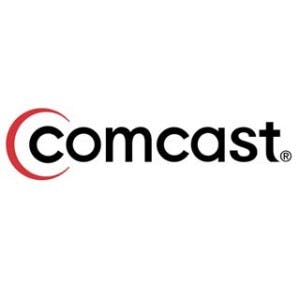Microblogging site Twitter, which currently has 200 million active users, recently surprised its social media peers by announcing that it was working with two major television networks to add streaming video content to its site.

The evolution of Twitter
These partnerships would allow Twitter to stream videos from NBC and Viacom, Inc. (NASDAQ:VIAB), and split the advertising revenue with the two media networks. Unnamed sources close to the deal told Bloomberg that a deal could be reached by mid-May.
According to a report on social media usage from Nielsen Holdings last June, a third of active Twitter users regularly tweeted about shows they watched on television – a 26% rise from the beginning of 2012. Those results were generated from a special partnership between Twitter and Nielsen to track the frequency of social media discussions regarding television programs.
Twitter also hired former News Corp (NASDAQ:NWS) president Peter Chernin last year, bringing in a veteran of the media industry to help the board forge new relationships with content providers. It also partnered with NBC during the 2012 Summer Olympics to promote and track over 150 million tweets during the two-week long games. Two months ago, Twitter acquired Bluefin Labs, a startup that produces analytics software for social media comments regarding television shows and commercials.
These developments over the past two years point to an obvious shift in Twitter’s strategy. The company is no longer content with 140 character tweets – it wants to become a major player in the media industry.
Existing partnerships
Twitter already has existing partnerships with The Walt Disney Company (NYSE:DIS)’s ESPN division, Time Warner Cable Inc (NYSE:TWC)’s Turner Broadcasting System and NBCUniversal’s Weather Channel.
ESPN, which accounts for nearly half of Disney’s media network segment’s revenue, is a particularly important partnership that highlights Twitter’s versatility. ESPN and Twitter initially co-created “GameFace,” which encouraged sports fans to tweet photographs of their “game faces” during live NBA games via the hashtag #GameFace. This simple idea was later expanded to NFL and MLB games.
ESPN also recently started featuring 15-second instant replays of sporting events on Twitter moments after they happen, playing on Twitter’s strength of being able to deliver news nearly instantaneously. This allows sports fans to watch highlights on Twitter via a smartphone or tablet, without being near a television. Twitter’s partnership with Turner Broadcasting also allows it to offer similar services to college sporting events.
What does this mean for other major media companies?
Although Twitter’s current and future partnerships won’t immediately make it a threat to YouTube, Google Inc (NASDAQ:GOOG) would be wise to keep an eye on Twitter’s unfolding strategy. Twitter does not support its own video uploads. Rather, users use third party services – such as YouTube, Vimeo or Telly – to share videos on the site. This is a smart tactic, since hosting videos requires massive bandwidth, which comes at a high price.
Since Twitter is so intent on sharing streaming video to its site, then it stands to reason that Twitter’s search function will soon include options for separate photo or video searches. When that happens, Twitter’s video search service could easily comb through millions of user uploaded videos that can be embedded and displayed within the site, undermining the importance of the original sites hosting the videos.
Therefore, Twitter could become a unifying front for user-submitted videos, combining all of its embedded videos with a single video meta-search engine – akin to Google Inc (NASDAQ:GOOG), Yahoo! Inc. (NASDAQ:YHOO) and Microsoft Corporation (NASDAQ:MSFT) Bing’s own video search functions.
The evolution of Hulu
Meanwhile, Twitter’s pending partnerships with Viacom and Comcast Corporation (NASDAQ:CMCSA) suggest that the company is intent on producing a Hulu-like experience on Twitter. Since Hulu is jointly owned by Comcast Corporation (NASDAQ:CMCSA), News Corp (NASDAQ:NWS). and Disney, Twitter is already more than halfway there, since it already has existing partnerships with two of those companies. Therefore, I believe that Twitter does not intend for its streaming video service to be a competitor to Hulu; rather, it wants to make it an extension of Hulu’s services and business model.
Whereas Hulu users are passive, watching the streaming shows and then possibly commenting afterwards, streaming Twitter video would encourage user engagement via hashtags and scrolling feeds of recent tweets. Similar to its coverage of live sporting events, Twitter could allow viewers to interact with each other while viewing the same show, making online viewing a much less solitary experience. Advertisers could also use hashtags to advertise more products during the show, rather than through the intermittent ads Hulu employs.
Music business
Twitter’s push into streaming video also accompanies its expansion into the streaming music business. Twitter is planning to launch a special mobile app that allows users to stream and share music via its site. Unlike higher-bandwidth video, Twitter intends for this music hosting service to be on site. To aid this transition, Twitter recently acquired music discovery service startup We Are Hunted.
This is potentially bad news for Google Inc (NASDAQ:GOOG), which recently acquired Spotify for $4.2 billion to aid its upcoming launch of its subscription-based YouTube Music service. This is even worse news for Pandora Media Inc (NYSE:P), the largest online radio station service, which now stands to be marginalized even further by both Twitter’s and Google Inc (NASDAQ:GOOG)’s music services.
Challenging Amazon.com, Inc. (NASDAQ:AMZN) and Netflix, Inc. (NASDAQ:NFLX)
Although Twitter’s current media-based efforts all revolve around live time-sensitive tweets, its newly forged partnerships could upset the balance of the movie streaming market. Considering that Viacom owns Paramount Pictures, and NBCUniversal owns Universal Studios, there is a good chance that these two studios will begin offering streaming movies on Twitter’s mobile app, once it is properly upgraded to accommodate more mobile media. These tactics could disrupt Amazon.com, Inc. (NASDAQ:AMZN) and Netflix, Inc. (NASDAQ:NFLX)’s current efforts to control the streaming media market.
The Foolish Bottom Line
In my opinion, Twitter’s extensive partnerships point to three exciting letters for investors: IPO. A privately traded company usually doesn’t go to such lengths to prove to the public that it can generate revenue with a sustainable business model unless it plans to go public soon.
However, considering the disastrous Facebook Inc (NASDAQ:FB) IPO last year, Twitter obviously wants to take its time and build up a reliable business first. Which brings us to the last question – how much would Twitter, which generated $350 million in annual revenue in 2012, be worth in today’s market?
Twitter’s $800 million round of financing in 2011 valued the company at roughly $8 billion. Therefore, it would make sense that given Twitter’s revenue growth and expansion over the past year, the company could be valued at nearly $10 billion today, about half the size of LinkedIn Corp (NYSE:LNKD).
So what do you think, dear investors? Does Twitter have a viable media and advertising based business model that will allow it to successfully go public in 2013, or is this simply another awful Facebook Inc (NASDAQ:FB) IPO in the making?
The article Will Twitter Become the Next Big Player in Online Media? originally appeared on Fool.com and is written by Leo Sun.
Copyright © 1995 – 2013 The Motley Fool, LLC. All rights reserved. The Motley Fool has a disclosure policy.
